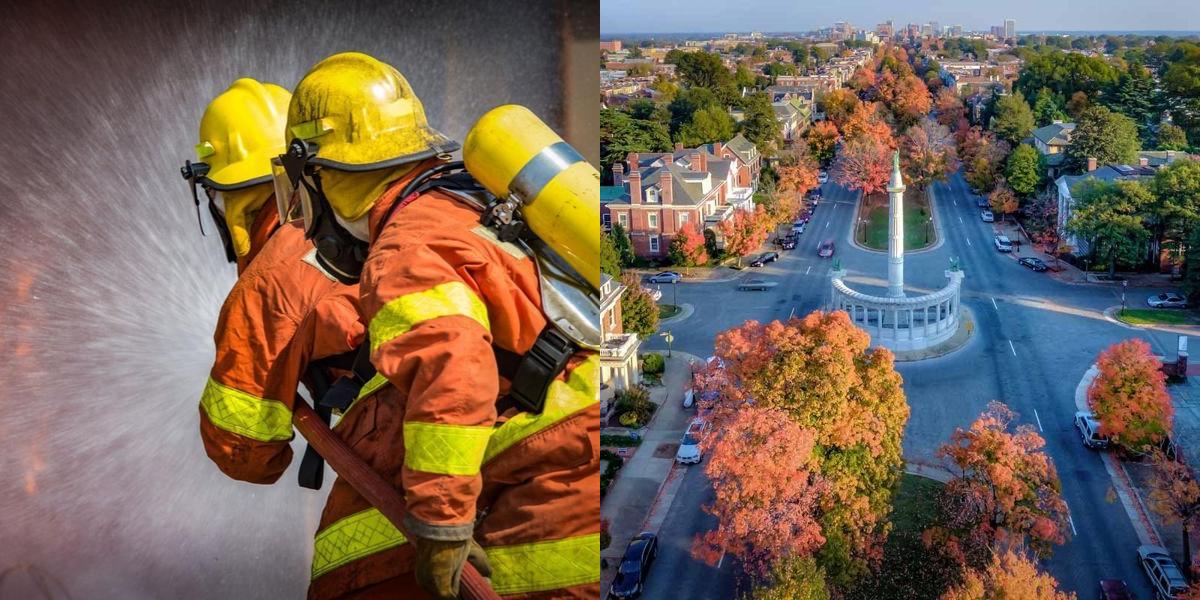How to Become a Firefighter in Virginia

Being a firefighter is a noble profession that involves protecting lives and property from the dangers of fire. If you are considering a career as a firefighter in Virginia, there are certain requirements and steps you need to take. In this blog post, we will guide you through the process of becoming a firefighter in Virginia.
Step 2: Prepare a Strong Resume and Cover Letter
When applying for firefighter positions, it's important to have a strong resume and cover letter that highlight your qualifications and experience. Include relevant details such as your firefighter certification, any additional certifications or training you've completed, and any relevant work or volunteer experience you have. Emphasize your physical fitness, problem-solving skills, and ability to work well under pressure.
Step 3: Network and Attend Job Fairs
Networking can be a valuable tool in your job search as a firefighter. Attend job fairs and career events specifically targeted towards firefighters and emergency responders. This will give you the opportunity to meet and connect with hiring managers and other professionals in the field. Networking can often lead to job opportunities or valuable connections that can help you in your job search.
Step 4: Prepare for the Interview
Once you've submitted your application and resume, you may be invited for an interview. It's important to be well-prepared for the interview to make a good impression. Research the department you're interviewing with, familiarize yourself with their mission and values, and be prepared to answer questions about your skills, experience, and why you're interested in becoming a firefighter.
Step 5: Pass the Physical Fitness Test
Many fire departments require applicants to pass a physical fitness test as part of the hiring process. This test is designed to assess your physical strength, endurance, and ability to perform the duties required of a firefighter. Practice the specific exercises and tasks that are typically included in the test, such as running, ladder climbing, and dragging heavy objects.
Step 6: Continue Learning and Training
Even after you've secured a job as a firefighter, it's important to continue learning and training to stay up-to-date with the latest firefighting techniques and safety protocols. Attend workshops, seminars, and training sessions offered by your department or other organizations to enhance your skills and knowledge.
Career Paths and Opportunities after Becoming a Firefighter
After becoming a firefighter, there are various career paths and opportunities you can pursue. Here are a few options to consider:
1. Promotion within the Fire Department
Once you've gained experience as a firefighter, you may have the opportunity to be promoted to a higher rank within the fire department. This can include positions such as fire lieutenant, captain, battalion chief, or even fire chief. These higher-ranking positions come with increased responsibilities and leadership roles within the department.
2. Specialized Training and Certifications
As a firefighter, you can also pursue specialized training and certifications in areas such as hazardous materials response, technical rescue, arson investigation, or emergency medical services. These additional certifications can open up new career opportunities and allow you to specialize in a specific area of firefighting.
3. Fire Inspections and Prevention
Another career path after becoming a firefighter is to work in fire inspections and prevention. Fire prevention officers are responsible for conducting inspections of buildings and properties to ensure they comply with fire safety regulations. They also educate the public on fire safety and prevention measures.
4. Emergency Medical Services
Many firefighters are also trained as emergency medical technicians (EMTs) or paramedics. This allows them to respond to medical emergencies in addition to firefighting duties. If you have a particular interest in emergency medical services, you may choose to focus your career in this area.
5. Fire Investigator
If you have a keen interest in solving mysteries and determining the cause of fires, you may consider becoming a fire investigator. Fire investigators are responsible for determining the origin and cause of fires, and they work closely with law enforcement agencies to gather evidence and conduct investigations.
How Much does a Firefighter Make?
The salary of a firefighter can vary based on factors such as location, experience, and the size of the fire department. According to the Bureau of Labor Statistics, the median annual wage for firefighters was $50,850 in May 2020. The lowest 10 percent earned less than $25,850, while the highest 10 percent earned more than $94,720.
For entry-level firefighters, the starting salary can be lower than the median wage. However, as they gain experience and move up the ranks, their salary can increase significantly. It's important to note that these figures are just averages, and the actual salary can vary depending on various factors.
Final Thoughts
Becoming a firefighter is a challenging and rewarding career choice. It requires dedication, physical fitness, and specialized training. By following the steps outlined in this guide, you can obtain your firefighter certification and increase your chances of securing a job as a firefighter. Remember to continue learning and training throughout your career to stay current with the latest firefighting techniques and opportunities for advancement. Good luck on your journey to becoming a firefighter!
Thinking about making a big change in your career path? It's important to be well-informed before starting off on your journey. Dreambound has written hundreds of in-depth guides to help. Explore some of these resources below.

Pia Yapjoco is part of the school growth and sales team at Dreambound. She helps facilitate school partnerships that expand educational opportunities for aspiring students in allied health and other trades. Beyond work, she curates her pup's Instagram, hunts for hidden coffee gems, and escapes into cozy gaming.



